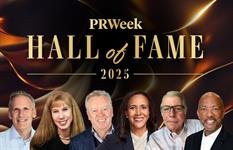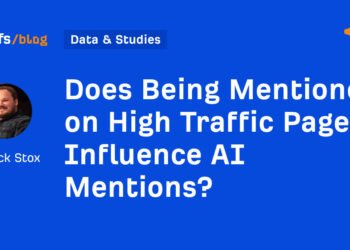The large marketing agency holding company Q1 numbers are all in and provide the first insight into how the comms industry is doing in this febrile 2025 operating environment.
It’s a little early to assess the full impact on the PR industry of the Trump administration’s policies on issues such as tariffs, immigration, federal shrinkage and the resulting volatile stock market — but there are certainly some runes to be read.
Interpublic Group today reported that its Specialized Communications and Experiential Solutions unit, which contains most of its PR firms — including The Weber Shandwick Collective and Golin — shrank 2.4% in terms of organic revenue. Difficult comparatives with the Olympic year of 2024 may have been partially responsible for that at firms such as Octagon and Jack Morton.
But PR was up low-to-mid single-digits year over year on an organic basis in Q1, according to a spokesperson. Golin in particular got a gold star from CEO Philippe Krakowsky for its “notable growth,” alongside Deutsch, IPG Mediabrands and Acxiom.
Overall, IPG reported an organic revenue decline of 3.4% year over year. Analysts at Citi said that, “Given the firm’s impending sale to Omnicom, we would expect a muted reaction in the share price today.” Equity Research liked IPG’s margins, attributing it to a cost-savings program contributing earlier than expected.
Tellingly, given the respective strengths of IPG versus Omnicom in the impending acquisition combination, IPG’s Integrated Advertising and Creativity-Led Solutions segment posted organic revenue down 10.3% year over year.
Huber Research noted that, while IPG won some key accounts in Q4 2024 and early 2025, it did not expect that to be enough to offset key losses in 2024 such as Amazon’s global media business, Pfizer’s global creative business and Chevrolet’s U.S. creative business.
“It generally takes upwards of 6-9 months for lost work to completely fall off, and thus these should impact 2025 organic growth more than 2024,” said the note.
Omnicom last week reported a year-over-year decline in organic PR revenue of 4.5%, much of it likely to do with some tough comps against the election year of 2024, when OPRG’s public affairs and political shops tend to prosper.
Both holding companies reported that the regulatory and other processes around Omnicom’s acquisition were going to plan and the deal is still set to be completed in the second half of 2025.
The sooner that can happen, the better for all parties concerned. Both companies are proceeding as if the deal is imminent and restructuring accordingly. The certainty afforded by regulatory approval will enable everyone to move to the next stage.
Separately, CPG behemoth Procter & Gamble projected a tariff impact on its business of between $1 billion and $1.5 billion over the next year around its earnings release.
WPP reported its Q1 numbers Friday morning, with the PR segment down 6.6% on a year-over-year, like-for-like basis, and Burson down a mid- to high single digit percentage on the same basis.
In the commentary around the results, WPP noted that PR “continued to face a challenging environment for client discretionary spending, in particular in Europe”. But it was “encouraged by improved new business momentum” in the PR division in the first quarter, “in particular in the US,” where Burson won Levi Strauss & Co.
Here at PRWeek Towers, we’re putting together the final touches to our annual Agency Business Report, the biggest, most in-depth and credible analysis of the PR agency sector, which by extension reflects trends in the whole industry.
There will be some big surprises this year. And you’ll find out the first of them soon.
Much more from me next week as we survey the PR industry at one of the most defining and exciting times in its evolution.
*This article was updated Friday morning with details of WPP’s Q1 earnings and Procter & Gamble’s tariff impact predictions.











![Building Sustainable B2B Content with Devin Reed [+Video]](https://mgrowtech.com/wp-content/uploads/2025/06/G2CM_FI1177_Learn_Article_Industry_Insights_Devin_Reed_V1a-120x86.png)


